In 2018 BCBN demonstrated commitment to Mental Health by awarding 2 projects supporting mental health for women in prison
BCBN has awarded grants of £3,000 to Penal Reform international for their mental health publication, and the Khidmat Centres for the production of a short movie capturing the experience of Muslim women in prison.
Prison populations have a significantly higher prevalence of mental health issues than the general community. This is partly because people with poor mental health are more likely to be arrested and convicted, and partly because the prison environment can cause or exacerbate mental health conditions. For instance, suicide rates in prison are up to 10 times higher than those in the general population, while self-harm rates run at close to 1 in 10 prisoners in England and Wales in 2015, as opposed to 1 in 250 in the community.
Penal Reform International
Penal Reform International, in partnership with Prison Reform Trust, aims to develop a publication as a practical guide for prison staff on maintaining and improving the mental health of female prisoners. The short guide will take an innovative approach, articulating the voice of women prisoners and the challenges they face with mental health –and the impact this has on their ability to cope with reintegration back into society. The publication will include information on two good practice models in the criminal justice system for mental wellbeing provision for women offenders, to inspire and generate new solutions throughout England and Wales, and beyond.
This project recognises that prison staff also face extreme pressures in a highly challenging environment and the guide will include a section to deal with this. The publication will empower staff by explaining how to apply best practice and international standards in addressing mental ill health among women prisoners. The project will raise awareness of the gender-specific needs of women in justice systems.
During imprisonment, women face a very dark and lonely time, and are heavily stigmatised and isolated. Negative and stigmatising attitudes by staff can exacerbate mental ill-health and also mean that prisoners feel unable to ask for help when they need it. Prison staff are not always adequately trained how to protect the mental well-being of women they supervise, and this guide will be a practical resource for staff (and other actors) on how to protect the mental well-being and address ill-health of women in prison. It will also be a resource for women in prison, so they can be empowered to ask for help and know what should be available.
 Muslim Women in Prison
Muslim Women in Prison
Khidmat Centres will produce a short film capturing the experience of Muslim women ex-offenders and their families (including children). The film will highlight the challenges facing Muslim women and their families, telling stories that are very hidden from the public domain, largely due to cultural taboo, shame and dishonour. The short film will serve to create awareness of the issues involved within the community and among providers.
There is little understanding of the experiences of Muslim women in the criminal justice system and beyond. We know this because two of our staff member, Sofia Buncy and Ishtiaq Ahmed were the first researchers in the UK to document the experiences of Muslim Women in Prison.
The report highlighted the ‘invisibility’ of voice and experience of Muslim women. Since its launch, we have campaigned to raise awareness of particular cultural and systemic malpractice which disadvantages Muslim women prisoners. It is only by raising this awareness that we can begin to change the root causes and factors leading to women’s criminality such as hidden domestic/sexual abuse and coercion. Although the project has helped to raise the profile of the issue there is no serious understanding of experiences or resettlement needs of Muslim ex-prisoners. The film will service to relay experiences direct from the women and their families thus providing an authentic insight into the issues involved around which the providers and community can begin to develop appropriate support and responses.
